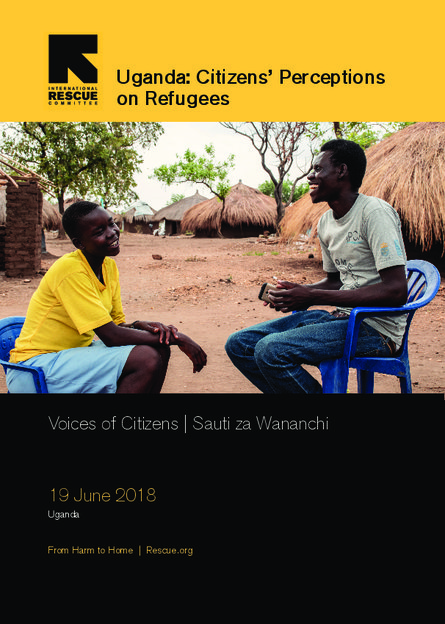
The majority of Ugandan citizens still have little or no interaction with refugees, yet Ugandans play a critical role, both directly and indirectly, in determining the conditions of refugee asylum. The extent to which citizens influence asylum policies in Uganda is not well documented, and little is known about the impact of citizens’ perceptions on current policy positions.
This report attempts to illuminate key issues concerning the reception and response of the citizens of Uganda to refugees, as well as their attitudes toward the establishment of durable solutions. UNHCR defines three durable solutions for refugees:
- voluntary repatriation to the country of origin in safety and dignity,
- local integration in the country of asylum and,
- resettlement to a third country.
The objective is to highlight any connection (or disconnection) that may exist between public perceptions of refugees and public policy established by national and local governments.
The report calls for more deliberate and strategic engagement of the public in the policy decision-making process in Uganda. It identifies opportunities for strategic engagement of citizens and concludes that more needs to be done to improve the quality of information available to the public, as well as opportunities for citizens to engage directly in policy formulation.